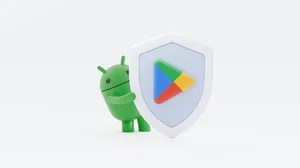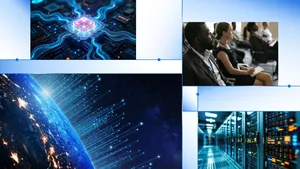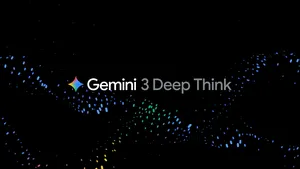The latest AI news we announced in July
For more than 20 years, we’ve invested in machine learning and AI research, tools and infrastructure to build products that make everyday life better for more people. Teams across Google are working on ways to unlock AI’s benefits in fields as wide-ranging as healthcare, crisis response and education. To keep you posted on our progress, we're doing a regular roundup of Google's most recent AI news.
Here’s a look back at some of our AI announcements from July.

In July, we focused heavily on not only expanding access to our AI tools by bringing them to more people and devices, but also making sure those tools are truly useful for all those new people who are gaining access to our latest offerings. Whether seeing the Earth in unprecedented detail with AlphaEarth Foundations, customizing your style with AI shopping tools, or even adding your own creative expressions to your old photos, our latest AI updates are not only more accessible, but built for your experience of the world.

We introduced new ways to learn with AI Mode in Search ahead of the school year. AI Mode, our most powerful AI search experience, is now more useful than ever thanks to its latest upgrades. There’s Canvas for planning, Search Live with video, PDF uploads and more. You can use these new features to learn and explore in new ways, whether you’re a student, parent or educator (or just wrapping up a busy summer).
We brought AI Mode to Circle to Search and Lens for deeper dives on visual searches. You can now use AI Mode within Circle to Search and Lens to explore complex topics and ask follow-up questions about your visual searches without switching apps. Plus, gamers can now get help while playing mobile games on their Android devices using Circle to Search. Stuck on a level and need some quick tips? Circle to Search will recognize the exact timestamp of your game and show you an AI Overview with information about what’s on your screen, including suggested articles and videos to help you even further navigate your game.
We introduced video overviews and an upgraded Studio panel in NotebookLM. Tens of millions of people have used NotebookLM as their personalized AI research assistant to turn complex material into digestible formats like Audio Overviews. Now, you can use NotebookLM to make Video Overviews.
Plus, the new Studio panel makes NotebookLM even more powerful and collaborative. You can now create notebooks in multiple formats. So if you’re studying for a big exam, you can create Mind Maps, Study Guides or Video Overviews, each focusing on a different chapter of your course notes.

We introduced new creative tools to Google Photos to transform your old pics. The AI tool people have been using in Gemini to turn their photos into videos is now available in Google Photos. The new feature allows you to animate your pictures, or you can try Remix to transform them into styles like anime or 3D art. Plus, a new "Create" tab in the Photos app — rolling out first in the U.S. this August — puts all creative tools in one easy spot.
We launched photo-to-video and brought Veo 3 to people in more countries. We launched our state-of-the-art video generation model Veo 3 in May — and this month we expanded access to Google AI Pro subscribers in over 150 countries. Now, with a new capability in Gemini, you can now transform your favorite photos into dynamic eight-second video clips with sound.
We made it possible for images to talk with Veo 3 in Flow. Since launching in May, people have generated tens of millions of videos in Flow, our AI tool for filmmakers. Using Veo 3, you can add sound effects and background noise to these clips. This latest feature allows you to generate speech as well, and we’re expanding Flow to more countries.

We launched a new way to personalize shopping and track prices with AI. Our try on experience that lets you try clothes on yourself is now available in the U.S., allowing you to upload your photo, tap "try it on” and see how you look in billions of items of clothing on Google. Never miss a deal with our upgraded price alerts, which are rolling out now and let you track your desired price and specific sizes and colors; and our AI-powered outfit and room design will be at your fingertips in AI Mode, with vision match technology that uses AI to generate a range of visual options and highlight similar, shoppable products.

We introduced a new AI model to help historians interpret ancient texts. Google DeepMind’s Aeneas is built to help historians interpret, attribute and restore fragmentary ancient texts. Aeneas can search for texts that share similarities in wording, syntax, standardized formulas or provenance across thousands of Latin inscriptions, process multimodal text and images and restore gaps in text. While trained for Latin, Aeneas can be adapted to other ancient languages, scripts and media, from papyri to coinage.
We introduced a new AI model to map our planet in unprecedented detail. Our AlphaEarth Foundations AI model functions like a virtual satellite that characterizes the planet’s entire terrestrial land and coastal waters by integrating large amounts of Earth observation data into an embedding that a computer system can easily process. With the Satellite Embedding Dataset, scientists can get a more complete and consistent picture of our planet's evolution, while offering insights on critical issues like food security, deforestation, urban expansion and water resources.

We shared our plans to invest in America’s energy, data center infrastructure and AI skills development. At the Pennsylvania Energy & Innovation Summit, Alphabet and Google’s President and Chief Investment Officer Ruth Porat announced a $3 billion deal with Brookfield to modernize two Pennsylvania hydropower facilities; a new AI skills training program for workers and small businesses; and an investment of over $25 billion in data centers and AI infrastructure across the PJM region.

We used a new AI agent to stop a cybersecurity vulnerability in the wild. Ahead of this summer’s Aspen Security Forum, Google President of Global Affairs Kent Walker offered a glimpse into how Google is using AI to fight cyber threats in the U.S., including the use of AI to uncover a vulnerability known to attackers and at the risk of being exploited. “We believe this is the first time an AI agent has been used to directly foil efforts to exploit a vulnerability in the wild,” he said.







